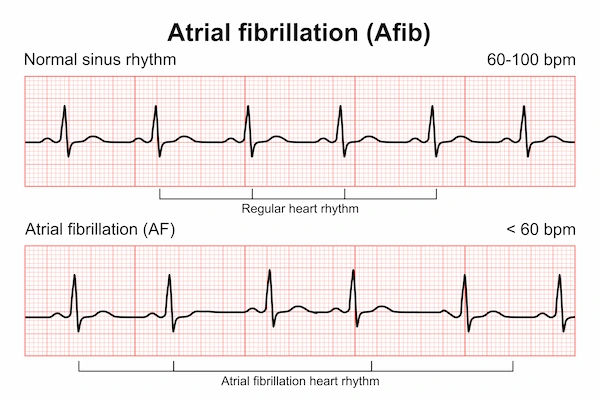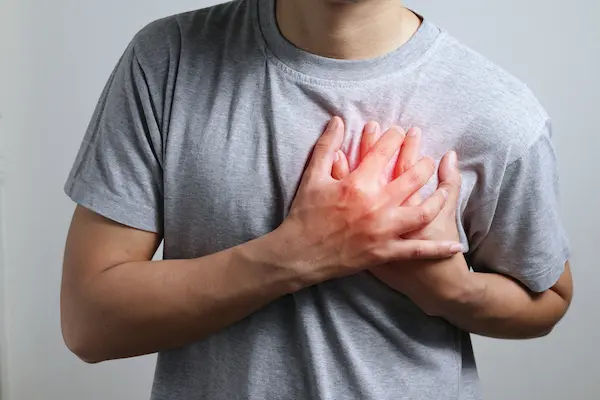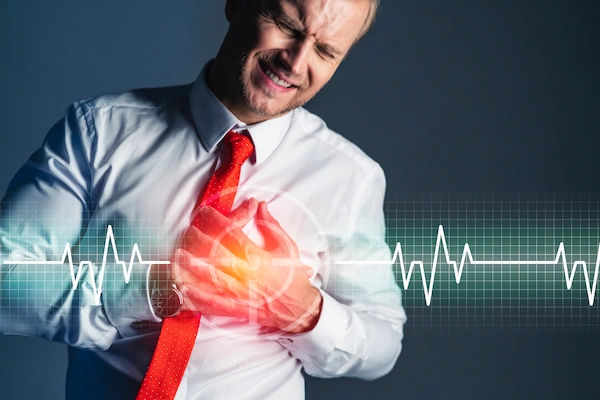- Male
- 20 Years
- 20/02/2025
I'm trying to understand the difference between heart palpitations and arrhythmia. Could you explain how they're different and if one is more serious than the other?
Answered by 1 Apollo Doctors
A "heart palpitation" is the feeling of your heart racing, fluttering, or pounding in your chest, which can be caused by various factors including stress, caffeine, or even just a temporary electrical glitch in your heart, while an "arrhythmia" is a medical term for an abnormal heart rhythm, meaning your heart beats irregularly, too fast, or too slow, and can sometimes be a more serious underlying condition that may or may not cause noticeable palpitations
Dr. Dr Khaleel Suggests...
Consult a Cardiologist
Answered 04/07/2025
0
0

More Cardiology Health Queries
View allI'm dealing with mitral stenosis and had a balloon mitral valvotomy about two years ago. I'm really anxious to know about my life expectancy now. I've attached my ECG and echo results. Could you help me understand what to expect going forward?
"Based on your history of mitral stenosis and previous balloon mitral valvuloplasty (BMV) done 2 years ago, your life expectancy can vary depending on various factors such as the severity of the stenosis, your overall health, and any other underlying medical conditions. It is important to regularly follow up with your cardiologist for monitoring and management. For mitral stenosis, medications such as diuretics, beta-blockers, and anticoagulants may be prescribed to manage symptoms and prevent complications. In some cases, surgical intervention or another BMV procedure may be recommended. Without reviewing your specific ECG and echo results, I cannot provide a precise estimate of your life expectancy. It is best to discuss this question with your cardiologist who has access to your complete medical history and test results."
Answered by 1 Apollo Doctors
Is it gas or heart attack?
Heart attack feels like pressure on chest cannot be relieved by antacids,associated with breathlessness. One can not entirely differentiate chest pain due to gas from chest pain due to heart attack based on symptoms only. You may need to visit a hospital and get evaluated by a health-care provider.
Answered by 1 Apollo Doctors
I'm really concerned because my friend just had angiography and then angioplasty three days later. Now, due to complications, another angiography and possibly angioplasty are needed just three weeks after the first. Are there any risks with having these procedures so frequently?
Frequent angiography and angioplasty procedures can carry certain risks, such as increased chances of bleeding, infection, damage to blood vessels, and allergic reactions to contrast dye. Additionally, there is a risk of developing blood clots at the site of the procedure. To help reduce these risks, your friend's healthcare provider may prescribe medications such as Aspirin and Clopidogrel to prevent blood clots, as well as medications like Atorvastatin to manage cholesterol levels and reduce the risk of further complications. It is important for your friend to follow the prescribed medication regimen and attend all follow-up appointments to monitor for any potential complications.
Answered by 1 Apollo Doctors
Disclaimer: Answers on Apollo 247 are not intended to replace your doctor advice. Always seek help of a professional doctor in case of an medical emergency or ailment.




